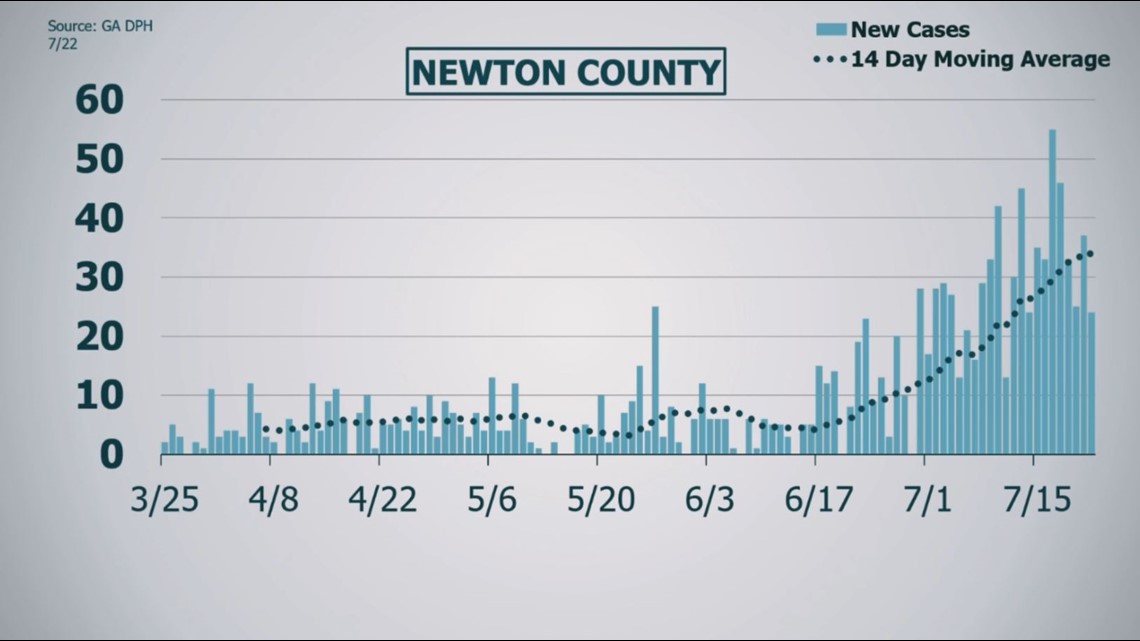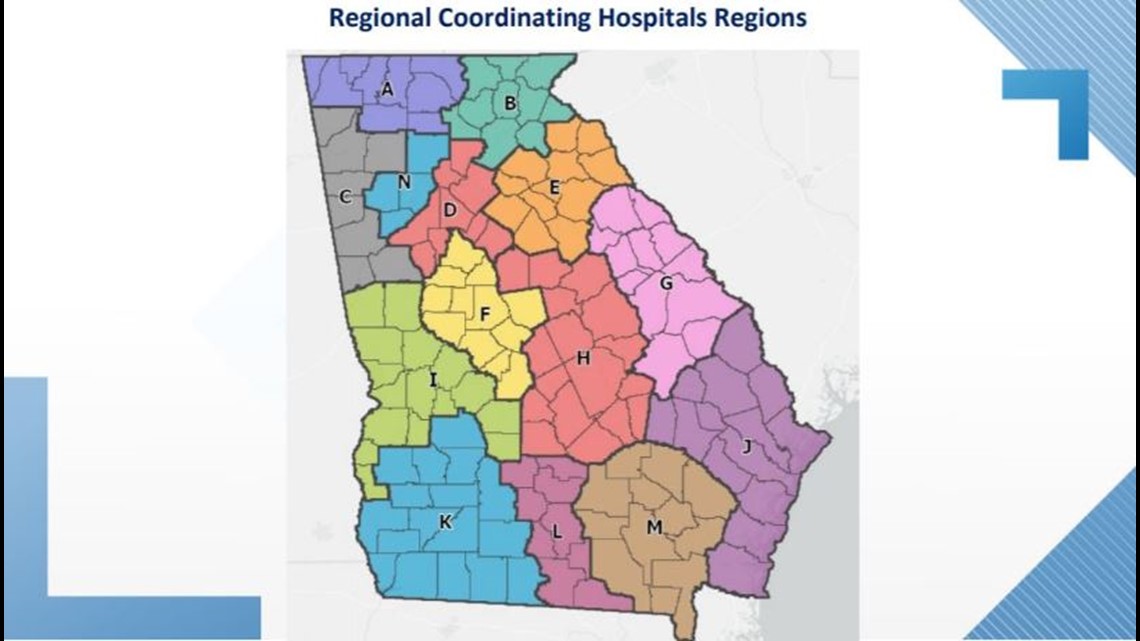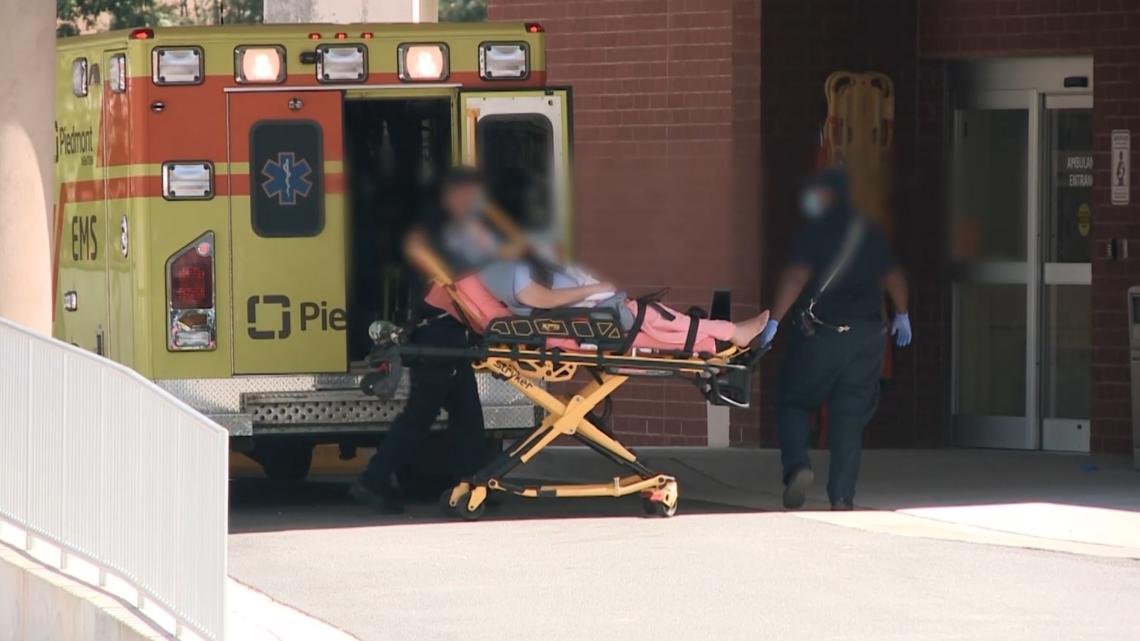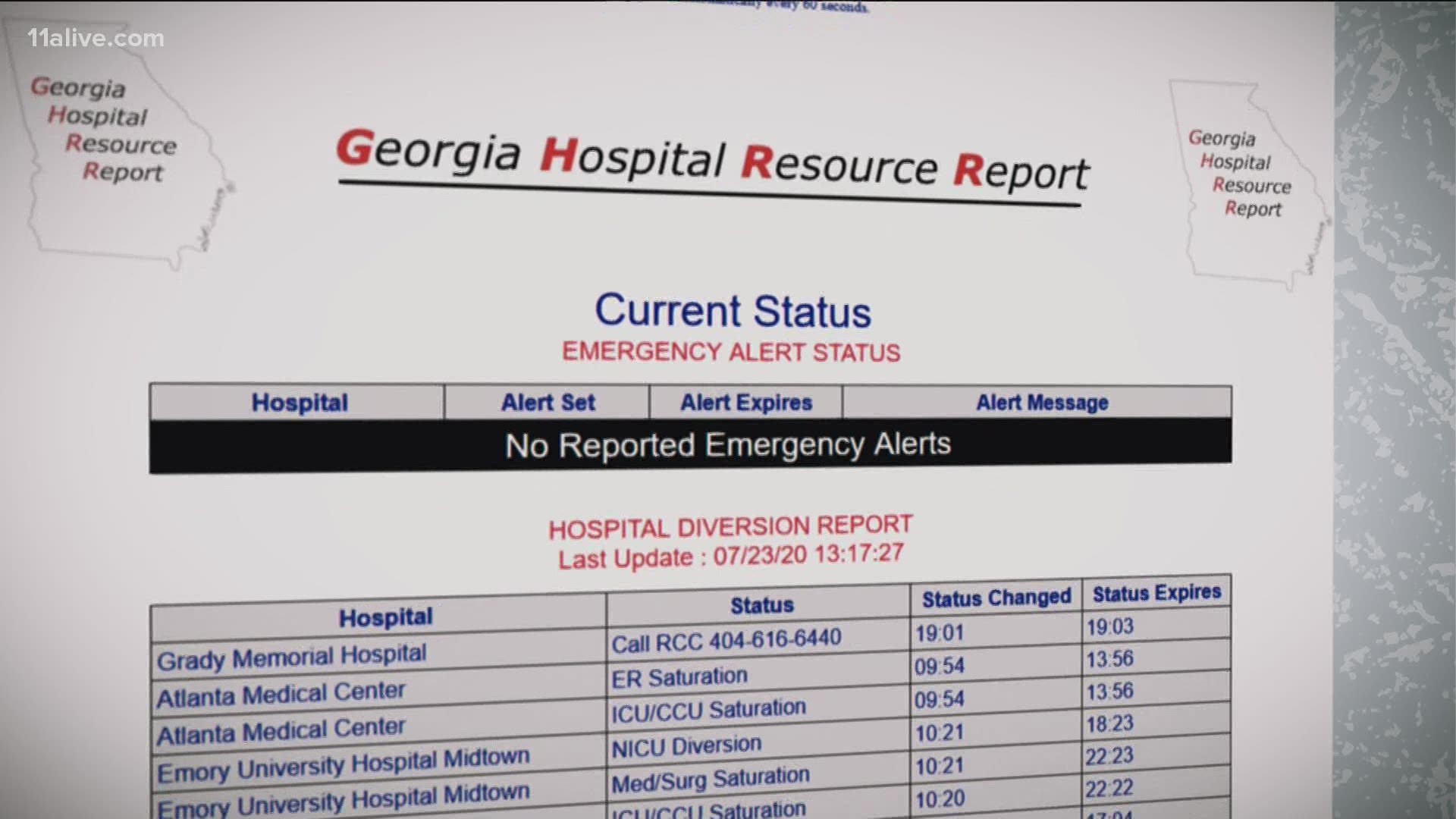ATLANTA — More than 430 new patients seeking medical care for COVID-19 were reported to the Georgia Department of Public Health (DPH) on Thursday. That’s the highest one-day jump since April 7.
The good news: we’ve learned enough about the virus to treat it better, leading to shorter average hospital stays. Even with Thursday’s jump, the number of active patients remained fairly steady, at 3,157.
That’s good news for hospitals struggling to keep up.
For several days this week Piedmont Newton Hospital has alerted ambulances it was on total diversion.
“[That means] all of their ICU beds are full, all of their hospital beds are full, even overflow’s full, and their ER beds are full. They just can’t take another patient,” explained Chad Black, who leads the Georgia EMS Association.
Diversions are not new, but Black said the list is longer than usual. A report showing the diversions is updated every few minutes and shows not only diversions, but hospitals that have a swell in ICU, ER or specialty fields. Hospitals have said the increase in patients is a sign in part, public confidence has been restored and people are returning for routine medical needs and elective surgeries.
But Black said there’s no doubt COVID-19 is playing a role.
On Monday, data from Georgia Emergency Management (GEMA) showed the Newton County hospital was treating 39 COVID-19 patients, either confirmed or suspected. While - compared to larger metro counties - the number seems small, it’s more than double what the hospital treated in the first wave of this pandemic.
Data from DPH, plotted in the graph below, show a clear picture of growing COVID cases in the area.


On Thursday, as Piedmont Newton Hospital removed its total diversion status, the county next door, Rockdale, added its hospital to the list.
“There are only so many beds and people to take care of those patients," explained Black.
This week, six hospitals around the metro have diverted patients at some point, primarily smaller hospitals in the suburbs or outlying counties not set up for a large swell. Eleven hospitals warned that while their ERs were open, their ICUs were full.
Statewide GEMA reported 87 percent of ICU beds are in use.
In metro Atlanta, Region D, which includes Fulton, Gwinnett, Newton and Rockdale counties, that percent is at about 88 percent. In region N, which includes Cobb, Douglas, Paulding and Cherokee counties, ICU’s are running at 95 percent capacity. In that region, only 11 of 211 beds are open for patients.


But not every patient receiving care in a hospital is there for COVID-19. An analysis earlier this week showed most regions had a COVID "population" of about 20 percent in their hospitals. The data do not distinguish whether those COVID patients are being treated in the emergency room, ICU or a general hospital floor.
RELATED: 'This is real and I see it': Georgia doctor grapples with COVID-19 professionally and personally
“I’ve been in this business 37 years, and we’ve heard about pandemics and kind of prepared table tops and did the exercises. But when we left those exercises, none of us really thought in the United States we will see this happen,” Black said.


There is some relief in sight. Northeast Georgia Medical Center in Gainesville opened its 20-bed temporary medical facility on Tuesday. Piedmont Hospital in Atlanta also opens its new 60-bed space for COVID-19 patients next week. GEMA, meanwhile, said the space it built in Milledgeville and the Georgia World Congress Center are ready for the Governor’s order.
As for the diversion alerts, hospitals said they are for ambulances. They are still taking patients who walk in the door and stressed if someone needs care – to come.
When asked about the impact on hospitals, Chad Wasdin, a spokesman for the Gwinnett Newton Rockdale County Health Departments, said the hospital capacity is not a sign of a hot spot. It's simply an indicator of widespread community transmission.
“This is a novel virus," Wasdin said. "There is no immunity our communities can rely on. There is no designated treatment nor vaccine available to prevent this virus. Therefore, we can expect to see more cases, unless the public embraces community mitigation measures by adhering to quarantine guidance, as well as the other mitigation guidance (socially distance, wear a mask, hand washing, staying home when sick)."
11Alive is focusing our news coverage on the facts and not the fear around the virus. We want to keep you informed about the latest developments while ensuring that we deliver confirmed, factual information.
We will track the most important coronavirus elements relating to Georgia on this page. Refresh often for new information.

